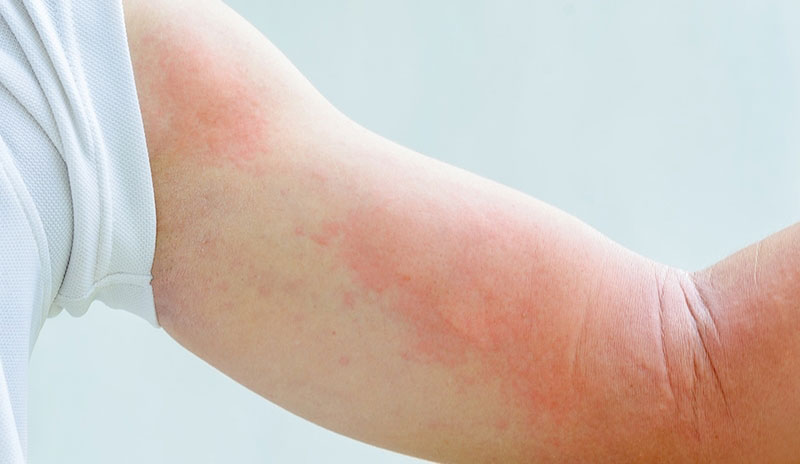Allergy Skin Testing and Treatment
This portion of our website is designed to provide information about our allergy practice. As a nasal and sinus allergy practice, we are here to assist with your problems resulting from inhaled (pollens, dust, mold, animal danders) allergens, which can result in allergic conjunctivitis, rhinitis, hay fever, eczema, hives, sinusitis, and asthma.
To make an appointment for Allergy Testing, please call
(415) 230-0909, (415) 829-8052 or (415) 751-4914
(all appointments on Thursdays).
What is Allergy?
An allergy is an unusual reaction or increased sensitivity to certain substances, called allergens that are inhaled, ingested, injected, or come into contact with the skin. People who are very sensitive to these different allergens as may develop antibodies. The allergen reacts with the antibodies on the surface of tissue cells in the body, releasing histamine and other chemicals causing allergy symptoms like hives, itchy watery eyes, sneezing, coughing, nasal drainage, nasal congestion, headaches, gastrointestinal symptoms, and wheezing. Proper identification of the allergens responsible for the symptoms may be achieved by either skin or blood testing.
Skin Testing

During the skin test, a small amount of allergen (pollen’s, dust, molds, animal dander) is used to trigger an immune system response of the skin. The size of the reaction helps to determine whether a patient is allergic to a particular allergen. Our practice uses one of the latest skin testing techniques called blended testing or modified quantitative testing. There will be forty preliminary prick tests which are administered easily and without needles, followed by a limited series of intradermal tests if indicated. The entire testing technique takes approximately 60 minutes. Please check with our office prior to testing because there are several medications which must be stopped prior to testing for the most accurate results. Results are available immediately and treatment may begin within one week of testing.
Allergy Treatment
Treatment involves avoidance of allergens both at home and at work. In addition, your doctor may prescribe oral medications or nasal sprays to reduce your symptoms. Finally, weekly injections or daily drops under the tongue (immunotherapy) of the antigens to which you are allergic are administered to increase your resistance or desensitize your immune system. The length of treatment depends on your symptoms and response treatment.
Immunotherapy
The only way to change underlying allergic disease is through immunotherapy, which helps build the body’s tolerance to allergens. This treatment is administered in two forms:
- Subcutaneous injections (allergy shots) – This treatment consists of a series of injections over a 3 – 5 year period. Most patients visit the office weekly for their first year of treatment and then gradually decrease the frequency of shots. Consistency is critical.
- Sublingual immunotherapy (allergy drops) – Allergy drops work much like allergy shots, but are delivered under your tongue in a liquid form from home daily. We follow the AAOA dosing protocol, and allergy drops are custom-formulated based on results of your allergy test. As with allergy shots, this treatment takes 3 – 5 years to complete.
For additional information regarding immunotherapy, please discuss with your physician and/or access the link to Serologix.
Fees and Deductibles
A full fee schedule is available in our office. It is your responsibility to check with your insurance company to determine coverage for the testing. Please be sure to bring your insurance card so that we may file your claim properly and in a timely fashion. You are responsible for any balance remaining after the insurance pays its portion.

